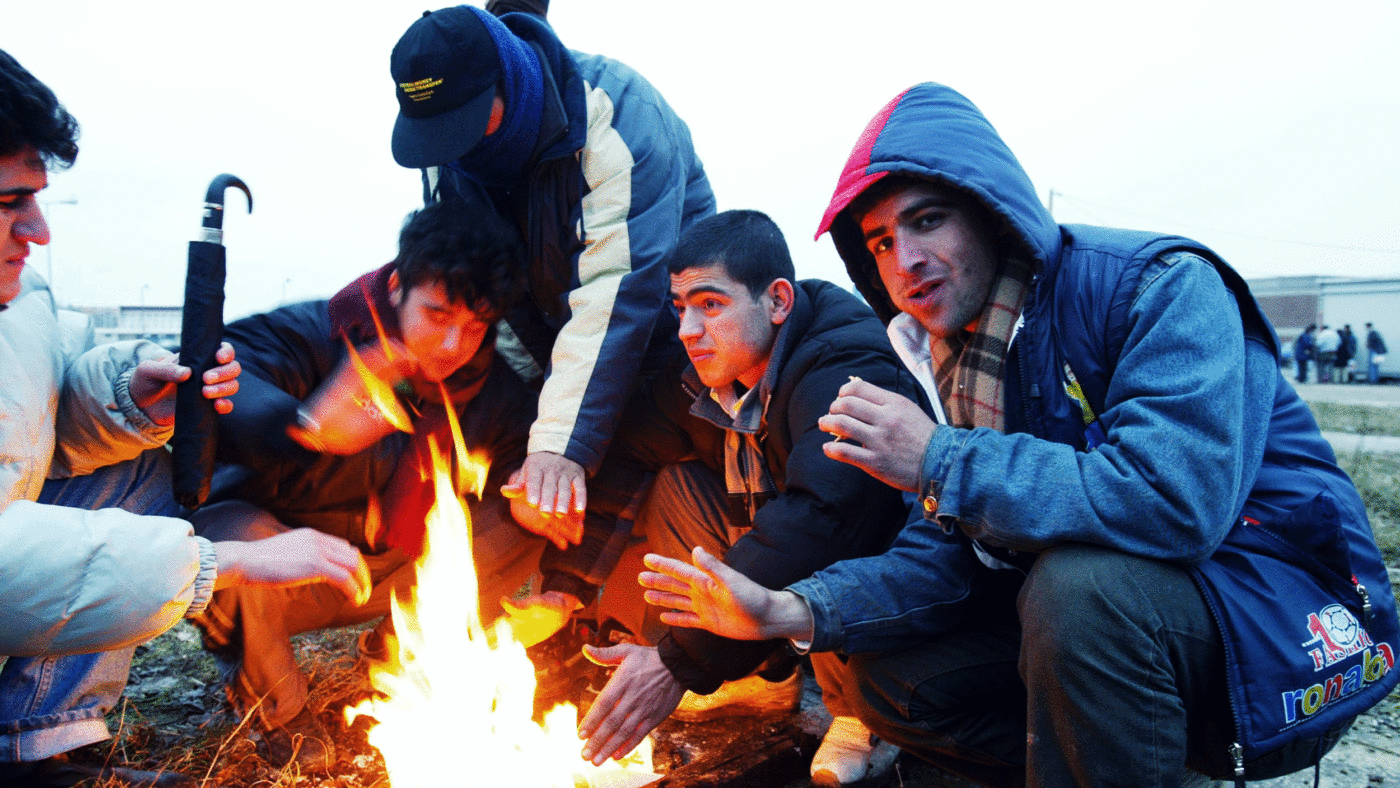I’m not sure whether it’s best described as déjà vu or history (sort of) repeating itself, but the scenes of asylum seekers and others attempting to cross the Channel, with hapless British attempts to stop them and the French authorities looking on as if none of it has anything to do with them, take me back nearly twenty years, to when I was writing my biography of David Blunkett.
It is all so very familiar, an eerie replaying of the same forces, the same pressures and the same politics.
When Blunkett became Home Secretary in 2001, his in-box was immediately swamped by an immigration crisis, with thousands crossing every week from the Sangatte refugee camp, 2km (1.2 miles) from Eurotunnel’s La Coquelle terminal near Calais.
As I described it in my biography, ‘Barely a day passed without a story of how asylum seekers and illegal immigrants were…crossing the channel. Originally designed to hold 500 asylum seekers, the number [at Sangatte] soon rose to over 1,200, with about 400 attempting to stow away each night. Since being built in October 1999, over 67,000 people had passed through Sangatte by December 2002. The French government was turning a blind eye, refusing to exercise proper control. Once the refugees escaped, after all, they became a British problem.’ (There was, of course, one big difference from today – they were not crossing the Channel by dinghy but as stowaways in or often under lorries through the Channel Tunnel.)
Blunkett’s strategy as Home Secretary was to sound and act tough on immigration. (Sound familiar?) His priority was to get a grip of the machinery, which he believed had become close to useless, to instil order and to demonstrate that he was tough.
That meant tough rhetoric backed by tough action – demonstrating that he and his party meant business, convincing the electorate that it was on their side. (Again, familiar?)
But it’s immediately obvious how inexact the parallel is. While we have seen a lot of tough talk from the Home Secretary and the Government, in terms of tough action there is little of any substance. This week there have been bizarre stories about deploying British troops on the French border but nothing which adds up to a serious attempt to stop the influx. The tide has not so much been stemmed as turned into a flood.
Blunkett knew that there could only be progress if he could persuade the French to act and so he devoted time and energy to building a rapport with his counterpart, the thrusting and ambitious Interior Minister, Nicolas Sarkozy. As one Blunkett aide put it to me, ‘The two of them just clicked. There was a real personal chemistry. They’re both outsiders in their own way, and they’re both complete ‘doers’. Both have the same restless ambition to do things. And Sarkozy’s daughter was at Sheffield University, which helped.’
One Labour Cabinet minister said to me that ‘it was depressing in a way – we got absolutely nowhere with Jospin [the Socialist French Prime Minister], our supposed political ally. And then all of a sudden Sarkozy came in and within weeks we were talking about closing Sangatte.’
The closure of Sangatte was a triumph for Blunkett. His negotiating hand was almost zero. As one official, closely involved in the negotiations, put it, ‘He had to put something on the table in return, but what? We couldn’t send the Iraqis back to Iraq [most of the Sangatte inmates were Iraqi], nor could we send the Afghans back’. All he could do, if he wanted to secure a quick closure, was to take people who were otherwise going to come illegally. And so over a fraught dinner with Sarkozy at the French Embassy, Blunkett agreed to mass evacuation of the camp, bussing inmates across the Channel and housing them.
It was a gamble: playing the victory of closing Sangatte against the defeat of having to take in the refugees. That night, driving back from the French Embassy, Blunkett turned to his special adviser and said, ‘If I take more than 1000 people I’m dead’.
He knew that he had taken a terrific risk. The following day, 2nd December 2002, he announced the closure in the Commons: ‘To ensure that we play our part in getting Sangatte closed immediately and, of course, for good, I have agreed that up to 1,000 Iraqis can come to the United Kingdom, not as asylum seekers but on work visas. This is a one-off exercise. They will be temporarily housed for up to three months while we undertake job matching…In this way, we will ensure that those who might have reached Britain clandestinely will now pay taxes and national insurance and will not be subject to continuing support from the British taxpayer.’
Sangatte was both symbolic and practical. Other measures, such as benefits changes, the stationing of UK immigration officials in French (and later Belgian) ports, fingerprinting of asylum seekers, greater control of student visas and moves to detain suspected terrorists, did not receive the same publicity but were, in the long run, far more important.
Circumstances today are very different. There is the opposite of a rapport between ministers, the means of transport are far more dangerous, and the French president seems determined to find any way possible to show that Brexit must be shown as a failure. And the Human Rights Act casts a net over many of the otherwise plausible mechanisms for halting the people traffickers.
But if there is one clear lesson from the Blunkett years it is the simple fact that the crisis cannot be solved just by the British. If it takes two to create an immigration crisis, it takes two to solve it.
Click here to subscribe to our daily briefing – the best pieces from CapX and across the web.
CapX depends on the generosity of its readers. If you value what we do, please consider making a donation.


